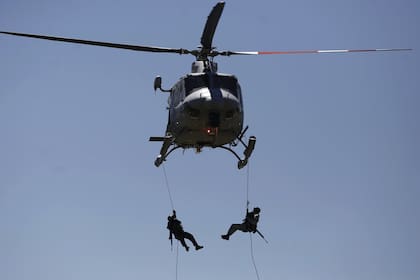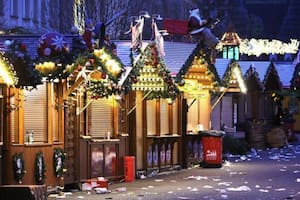
No go areas and limited transport: the impact of the summit


The arrival in Buenos Aires of the main political leaders of the world will change the routine of the city during the next days. While Angela Merkel , Theresa May , Donald Trump,Vladimir Putin and the rest of the participants of the G-20 Summit , together with their respective committees, move through the streets of Buenos Aires, citizens will find blocked and secure areas, limitations for travelling both in public transport and private vehicles and, above all, an unprecedented deployment of security forces.
There will be six delimited perimeters with different degrees of restrictions in place from Thursday to Saturday. The train and subway service will be suspended, and there will be security rings that will increase in control the closer they are to the venues where the different activities will take place. For this reason, Friday was declared a holiday.
Six will be the delimited perimeters with different degrees of restrictions that will be activated from this Thursday until next Saturday
A 12-kilometer area around Costa Salguero, the main venue of the meeting, where the most important activities of the summit and bilateral meetings will be held, will have maximum security, and there will be a complete blockage of the Illia, Cantilo and Lugones highways in both directions.
As from Thursday at 3 pm, that perimeter will be completed with the closure of the Retiro train and bus stations. The rail services will will be suspended until Sunday, and the ground transportation operation will be transferred to the Dellepiane terminal in the south of the city.
The inhabitants of the Villa 31 may enter or leave the neighborhood by the usual routes to Avenida Ramos Mejía or Calle Rodolfo Walsh, although the routes that face the port area will be closed
Between Thursday and Saturday, in the perimeter of the center of Buenos Aires, delimited between Alem, Paseo Colón, Independencia, Entre Ríos, Callao and Córdoba avenues, traffic will be interrupted at different times. But in a smaller sector, between Uruguay, Corrientes, Suipacha and Córdoba, only registered citizens will be able to enter. And between Talcahuano, Lavalle, Pellegrini and Córdoba, around the Teatro Colón, only people with authorization to participate in the G-20 will be allowed to enter.
The security area around the theater is even wider: it covers about 230 blocks and reaches Independencia Avenue due to the protests organized by political and social groups for Friday. The residents who live there were registered and informed of the requirements they must meet to circulate. People who work within the perimeter may enter, although it is recommended to have an ID at hand because it can be requested at the controls.
The subway will work as usual on Thursday, with certain limitations on line B and H. The entire network will be paralyzed Friday and Saturday.
For this occasion there will be more than 22,000 members of the federal security forces and the police of the City and the province of Buenos Aires. Also 3,500 custodians will be added to accompany the presidents. The United States, China and Russia will provide the greatest number of agents
The government's recommendation for those days is that people try to circulate as little as possible in restricted areas. In addition to the limited public transport services, porteños will encounter a police operation rarely seen in Buenos Aires, only comparable perhaps with the deployment that took place during the 2005 Summit of the Americas, in Mar del Plata.
For this occasion there will be more than 22,000 members of the federal security forces and the police of the City and the province of Buenos Aires. In addition, 3,500 security forces will accompany the presidents. The United States, China and Russia will provide the greatest number of agents that will help protect and further shield the movements of the leaders during the summit.




